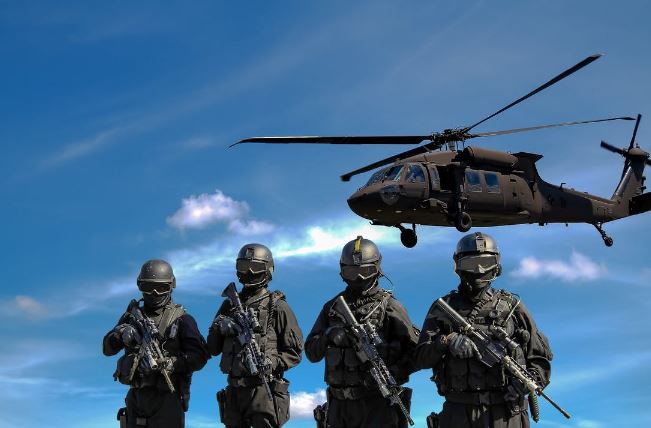Berlin [Germany], June 12: After the fall of the Berlin Wall and the end of the Cold War, universal conscription seemed to be on the way out in Europe. Over the past 20 years, if not earlier, compulsory military service has been abolished in most countries on the continent.
Germany suspended military service in 2011, but it can be reintroduced if the Bundestag determines there is a need for defense as stipulated by the country's Basic Law.
The situation is similar in many other European countries. Of the 29 that are members of NATO, including Turkey, only six have maintained compulsory military service since 1993.
The United Kingdom, the United States and Canada have had exclusively professional armies for 50 years or more.
However, Russia's war of aggression on Ukraine has spurred much debate about the issue, with many countries considering whether they should reintroduce compulsory military service and increase their defense budgets.
Ukraine and Lithuania
Shortly after the annexation of Crimea in 2014, Ukraine reintroduced compulsory military service for men aged 18 to 26. Lithuania followed in 2015 with men aged 18 to 25. After Russia launched its full-scale invasion of Ukraine on February 20, 2022, the Ukrainian government enacted a law making all physically fit men between the ages of 18 to 60 potentially subject to compulsory military service.
Latvia
The Baltic state is one of the three NATO members, alongside Estonia and new member Finland, that border Russia. Latvia is planning to reintroduce compulsory military service, which the other two never abolished.
From 2024, all men aged 18 to 27 will be required to undergo 11 months of military training. From 2028, 7,500 Latvians will be called up each year. According to NATO, that is the equivalent to the total number of professional soldiers in the country in 2022.
Romania
A first attempt to reintroduce compulsory military service failed in 2015, but Romanian Prime Minister NicolaeCiuca, a retired general, spoke out in favor of it again this past spring. In a draft bill unveiled last year, the Romanian Defence Ministry back a proposal for all military-aged Romanians living abroad to report for military service within 15 days in the event of a general mobilisation.
The Netherlands and Sweden
The Dutch army currently has a shortage of 9,000 soldiers and the government is considering increasing the numbers through compulsory military service, as Sweden has been doing since 2018.
Scandinavia's largest country abolished compulsory military service in 2010, but reintroduced it because there were not enough volunteers signing up. Now, all 18-year-olds have to report for duty, but only a small proportion are recruited for actual military service, which is also the case in Norway.
Norway and Denmark
As of 2016, all 18-year-olds in Norway - men and women - must present themselves for military service. But only about 9,000 of the 60,000 annual candidates are called up for 19 months of service. According to official sources, military service holds a similar level of prestige as higher education qualifications because of the strict selection process.
Denmark also has compulsory military service, but there are enough volunteers to meet demand.
France
France is currently debating a "light" form of compulsory military service. President Emmanuel Macron introduced the Universal National Service in 2019, which enables young people to volunteer for a month and serve their country. The government is now considering making this compulsory for all French nationals aged 15-17.
Germany
German Chancellor Olaf Scholz has rejected a proposal by his defence minister, Boris Pistorius, to introduce compulsory military service. However, there are calls for a national debate on the issue from across the political spectrum.
The Bundestag's commissioner for the army, Eva Hogl, who is also from the ruling Social Democrats like Scholz and Pistorius, recently suggested that a mandatory year of service in military or civilian institutions should be discussed. She also said that members of the military should talk about their work in schools.
Source: Times of Oman

